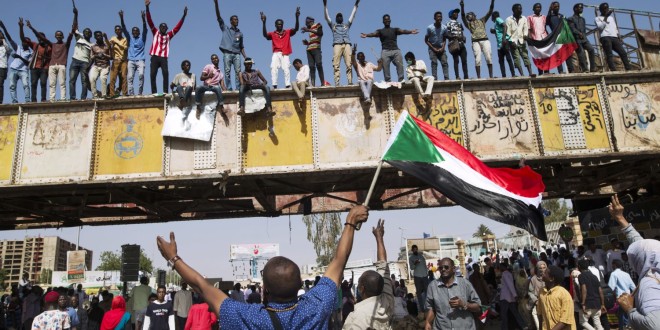(18 December 2019) At a critical juncture in Sudan’s history, a new report from the African Centre for Justice and Peace Studies (ACJPS) and REDRESS, A Way Forward? Anti-torture reforms in Sudan in the Post-Bashir era identifies priorities for change and key reforms to end the systematic practice of torture in Sudan, punish the perpetrators and provide reparations for the victims.
Over three decades, the regime of former President Al-Bashir in Sudan heavily relied on the use of torture to silence its critics and terrorise communities. Security forces, militias and police practised the most brutal and diverse forms of torture.
With Al-Bashir’s ousting in April 2019, and the installation of a new government in August 2019, following months of citizens’ protests, there is a crucial opportunity to ensure Sudan meets its international law obligations to combat and eradicate torture.
Over the years, several laws and policies have allowed torture to continue and perpetrators to operate with impunity in Sudan. These included a system of immunities that ensured that anyone who committed torture remained above the law and a non-existent system of remedies for victims.
Sudan has yet to comply with decisions in several cases brought by victims of torture before the African Commission on Human and Peoples’ Rights, the body tasked with promoting and protecting human rights throughout the African continent. These include cases brought by REDRESS, ACJPS and other partners in Sudan.
To bring Sudan in line with its international obligations, domestic law and policy reforms are essential. The new Constitutional Declaration of 2019 paves the way for institutional, structural and legislative reforms, but it also leaves many issues uncertain.
“Under the current civic led transitional government, we want to see justice done for the victims of torture in Sudan. They have been denied access to justice for almost 30 years due to immunities,” said Mossaad Ali, Executive Director of ACJPS.
The report offers practical and effective recommendations for Sudan to comply with its international obligations to prevent torture, investigate and prosecute instances of torture and realise victims’ rights to reparations.
“REDRESS and ACJPS have been advocating for these anti-torture reforms in Sudan for many years. The moment to make them is now,” said Rupert Skilbeck, Director of REDRESS.
Please read here a Summary Report in English and Arabic.
For more information or to request an interview, please contact Eva Sanchis, REDRESS’ Head of Communications, on eva@redress.org, +44 (0) 20 7793 1777 or + 44 (0) 7857 110076 (out of hours) or Mossaad Ali, Executive Director of ACJPS, on mossaad.ali@acjps.org, +4672 771 27 82(Sweden) or +256 779 584542(Uganda)
 African Centre for Justice and Peace Studies ACJPS | المركز الافريقي لدراسات العدالة و السلام
African Centre for Justice and Peace Studies ACJPS | المركز الافريقي لدراسات العدالة و السلام




